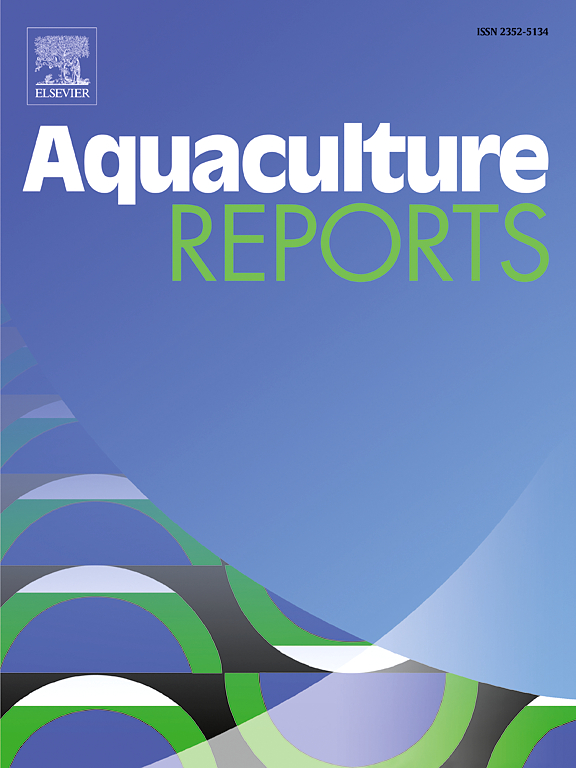Global analysis of transcriptome and metabolomics revealed that fatty acid synthesis and urea cycle process regulate the growth of chinese soft-shelled turtle
IF 3.7
2区 农林科学
Q1 FISHERIES
引用次数: 0
Abstract
The Chinese soft-shelled turtle (Pelodiscus sinensis) is an economically important aquatic species, with its growth influenced by genetic factors, environmental conditions, nutritional status, and intestinal microbiota. Despite its slow growth rate, typically taking 2–3 years to reach market size, understanding the molecular mechanisms that regulate its growth is critical for optimizing breeding conditions and improving aquaculture sustainability. In this study, we carried out a multi-omics analysis in individuals of P. sinensis aged 2, 5, and 8 months to systematically disclose the biological mechanisms and explore how these mechanisms affect its growth and adaptive ability. We found significant changes in the composition of intestinal bacteria, with Fusobacteriota and Proteobacteria dominating at the phylum level and displaying increasingly intimate interactions as growth processed. Notable enrichments were observed in pathways related to arginine biosynthesis and glycine and serine metabolism in differentially expressed genes (DEGs), as well as steroid biosynthesis and steroid hormone biosynthesis pathways in differentially expressed metabolites (DEMs). Furthermore, fatty acid synthesis and the urea cycle were identified as key metabolic pathways essential for the breeding of Chinese soft-shelled turtles. This research provides insights that can be utilized to optimize feed formulations, enhance breeding efficiency, and promote the healthy growth of P. sinensis in aquaculture.
转录组学和代谢组学的全球分析表明,脂肪酸合成和尿素循环过程调节着华鳖的生长
中华软甲鱼(Pelodiscus sinensis)是一种经济上重要的水生物种,其生长受遗传因素、环境条件、营养状况和肠道微生物群的影响。尽管其生长速度缓慢,通常需要2-3年才能达到市场规模,但了解调节其生长的分子机制对于优化养殖条件和提高水产养殖的可持续性至关重要。本研究通过对2、5、8月龄中华按蚊个体进行多组学分析,系统揭示其生物学机制,探讨这些机制对其生长和适应能力的影响。我们发现肠道细菌的组成发生了显著变化,梭杆菌门和变形杆菌门在门水平上占主导地位,随着生长过程的进行,它们之间的相互作用越来越密切。差异表达基因(DEGs)中精氨酸生物合成和甘氨酸和丝氨酸代谢相关通路以及差异表达代谢物(dem)中类固醇生物合成和类固醇激素生物合成通路均显著富集。此外,脂肪酸合成和尿素循环是中华鳖繁殖的关键代谢途径。本研究可为优化饲料配方、提高养殖效率、促进中华对虾在水产养殖中的健康生长提供参考。
本文章由计算机程序翻译,如有差异,请以英文原文为准。
求助全文
约1分钟内获得全文
求助全文
来源期刊

Aquaculture Reports
Agricultural and Biological Sciences-Animal Science and Zoology
CiteScore
5.90
自引率
8.10%
发文量
469
审稿时长
77 days
期刊介绍:
Aquaculture Reports will publish original research papers and reviews documenting outstanding science with a regional context and focus, answering the need for high quality information on novel species, systems and regions in emerging areas of aquaculture research and development, such as integrated multi-trophic aquaculture, urban aquaculture, ornamental, unfed aquaculture, offshore aquaculture and others. Papers having industry research as priority and encompassing product development research or current industry practice are encouraged.
 求助内容:
求助内容: 应助结果提醒方式:
应助结果提醒方式:


